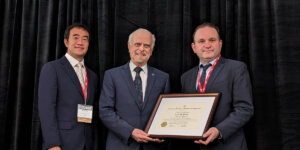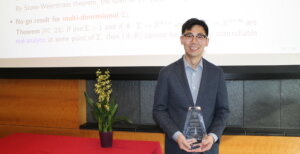
PHOTO/Visual Tag Mx, Pexels.
Big Data has changed how many large organizations operate; with the ability to analyze extremely large data sets and identify patterns and trends, these organizations can better navigate strategic decision-making. However, for governments, non-profits, academia and small businesses, these data networks are often unavailable. Researchers from the USC Viterbi School of Engineering will build a Business Open Knowledge Network (BOKN) in an effort to identify and incorporate critical data into a tool for small business growth, entrepreneurship and sustainable business and financial practices.
Led by Jay Pujara, research lead at the USC Viterbi Information Sciences Institute (ISI), in collaboration with Craig Knoblock, executive director of ISI and research professor of Computer Science and Spatial Sciences at USC Viterbi and Gerard Hoberg, professor of finance and business economics at USC Marshall School of Business, the project is funded by the National Science Foundation (NSF) through its Convergence Accelerator. It is one of 43 projects included in the NSF’s pilot program, which aims to promote multidisciplinary research to accelerate the process of scientific discovery and advancement. The NSF Convergence Accelerator awarded $1 million for phase I of the project, which includes co-PIs from Dartmouth and the University of Maryland.
Said Pujara: “The lack of a centralized source of business knowledge has an extensive societal impact, from the entrepreneur seeking to vet their ideas before starting a new business to the regulatory agency poring over data to avoid the next financial crisis. The Business OKN will revolutionize how researchers address financial and socio-economic research questions. Analysts and regulators can use BOKN to make more informed policy recommendations. Small businesses will be able to identify partners and competitors.”
The BOKN will be a foundational tool to further small business growth and entrepreneurship, while also informing research on the nation’s best business practices. This project brings together faculty and researchers from the business school and computer science programs and also engages members of regulatory agencies and financial technology companies to capture knowledge on businesses, innovation and markets in one place. This knowledge will be made accessible using the latest techniques in computer science.
Using the BOKN as a resource, entrepreneurs, students and researchers will gain a deeper understanding not only of the business environment, but also of how to combine state-of-the-art computational approaches for extracting, linking, representing and analyzing data with the complex and nuanced knowledge inherent to the business domain. In the long-term, this means entrepreneurs can better understand their operating environment, regulators will be able to better identify upcoming conflicts or challenges, and researchers can test and validate theories to improve best business practices.
“Currently, knowledge about businesses is spread across different sources like local, state and federal governments and proprietary data sets controlled by companies,” Pujara said. “By integrating all of this knowledge, we hope to create an unparalleled resource that is free for everyone to use and creates a new ecosystem for understanding the financial health of the nation.”
The first phase of the grant will focus on assembling a community of interdisciplinary stakeholders from academic, governmental and corporate institutions to define a core set of requirements and services for BOKN.
This project is funded by NSF Award #1937153.
Published on November 6th, 2019
Last updated on May 16th, 2024












